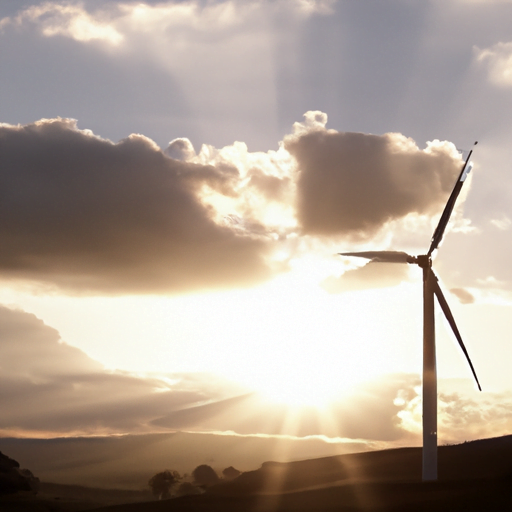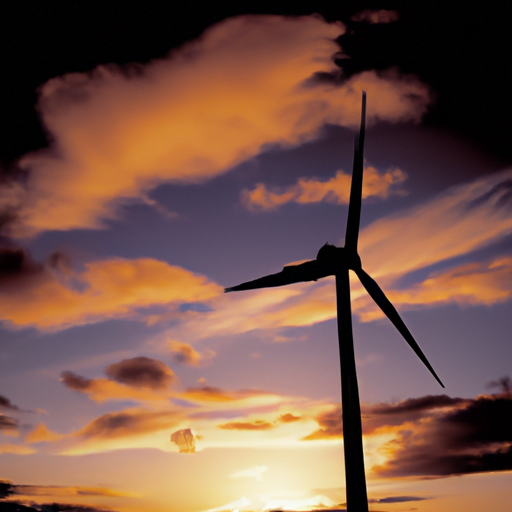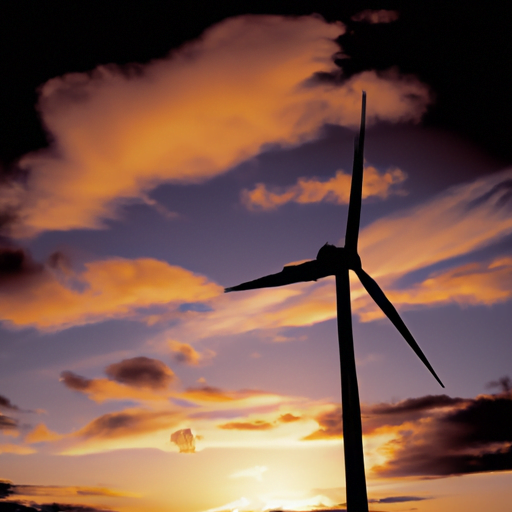So you’re considering off grid living, huh? Well, let me tell you, it’s quite an adventure! One question that often comes up when it comes to living off the grid is whether it’s okay to leave the heat pump off. And let me tell you, it’s a valid question. After all, you want to make sure you’re making the most efficient use of your energy sources. Well, fear not, because I’m here to shed some light on this topic.
When it comes to off grid living, every bit of energy counts. And the heat pump is no exception. While it may be tempting to turn it off and rely solely on other heating sources, it’s important to consider the consequences. Heat pumps are designed to be energy efficient and can provide both heating and cooling options. By leaving it off, you may end up relying on other, possibly less efficient, heating sources and consuming more energy in the long run. But don’t worry, there are ways to optimize the usage of your heat pump to ensure minimal energy wastage.
In an upcoming article, we’ll dive deeper into this topic and explore the different factors to consider when deciding whether to leave your heat pump off during off grid living. We’ll discuss the energy consumption, the impact on your overall system, and how to find the right balance between energy efficiency and comfort. So stay tuned and get ready to learn more about this intriguing topic. Until then, remember, every decision you make in off grid living can have an impact on your energy consumption.

Overview of Heat Pump in Off Grid Living
Off grid living refers to living without access to public utilities, such as electricity and water. It often involves relying on alternative energy sources and self-sustainability. One vital element of off grid living is heating, especially in colder climates. Many off grid homeowners use heat pumps to regulate indoor temperatures. However, there may be instances when you question whether it is okay to leave the heat pump off during off grid living. This article will explore the importance of heat pumps in off grid living, the effects of leaving the heat pump off, considerations before doing so, the advantages and disadvantages, finding the balance, tips for off grid living without a heat pump, safety considerations, and common misconceptions.
Importance of Heat Pump in Off Grid Living
Heat pumps play a crucial role in off grid living by providing efficient heating and cooling. They operate by transferring heat from the outside air to indoors during the winter and vice versa in the summer. By utilizing renewable energy sources such as air, water, or geothermal heat, heat pumps can significantly reduce energy consumption compared to traditional heating systems. Additionally, they can provide both heating and cooling abilities, making them versatile for year-round comfort in off grid living situations.
How Heat Pump Works in Off Grid Living
A heat pump system consists of an outdoor unit and an indoor unit connected by refrigerant lines. The outdoor unit contains a compressor, which pressurizes the refrigerant, and a heat exchanger, which extracts heat from the air or ground. The indoor unit disperses the heat or cold air throughout the house via a network of ducts or pipes. The system uses an electric motor to power the compressor and fan, but off grid homeowners can integrate solar panels or wind turbines to generate the required electricity, making it a sustainable option.
Effects of Leaving the Heat Pump Off
Impacts of Not Using Heat Pump in Off Grid Living
Choosing to leave the heat pump off during off grid living can have several consequences. The most obvious impact is the lack of temperature control and reduced comfort levels. Without a heat pump, you may have to rely on alternative heating sources, such as wood stoves or propane heaters, which are less efficient and may require more maintenance and fuel. Moreover, not using a heat pump can result in higher energy consumption and increased utility costs, as alternative heating methods may be less energy-efficient.
Consequences on Comfort and Temperature Control
Temperature control is vital for a comfortable living environment, particularly in areas with extreme climate conditions. Without a heat pump, it can be challenging to maintain a consistent temperature throughout the house. Alternative heating methods may create hot or cold spots, leading to discomfort and uneven heating. Additionally, without the ability to cool the air during the summer months, off grid homeowners may experience discomfort and difficulty getting a good night’s sleep.
Considerations before Leaving the Heat Pump Off
Climate and Weather Factors
The decision to leave the heat pump off during off grid living should take into account the climate and weather conditions of your area. If you reside in a mild climate with relatively stable temperatures year-round, you may be able to rely on alternative heating methods or natural insulation techniques. However, in regions with harsh winters or scorching summers, it is crucial to evaluate the consequences of not using a heat pump, such as the risk of frozen pipes or extreme discomfort during peak temperatures.
Insulation and Energy Efficiency
The level of insulation and energy efficiency in your off grid home is another significant factor to consider before leaving the heat pump off. Proper insulation helps retain heat during the winter and cool air during the summer, reducing the reliance on external heating or cooling methods. By ensuring your home is well insulated, you can minimize heat loss and maintain comfortable indoor temperatures even without a heat pump. Investing in energy-efficient doors, windows, and insulation materials can greatly impact the feasibility of turning off the heat pump.
Alternative Heating Options
Before leaving the heat pump off, explore alternative heating options that are compatible with your off grid lifestyle. Wood stoves, pellet stoves, and propane heaters are common alternatives to heat pumps. These heating methods rely on fuel combustion and require a constant supply of wood or propane. It is essential to consider the availability, cost, and sustainability of these fuel sources in your location. Additionally, solar heating systems and radiant floor heating can be viable options for off grid homeowners seeking energy-efficient heating solutions.

Advantages of Leaving the Heat Pump Off
Energy Conservation
One of the significant advantages of leaving the heat pump off during off grid living is energy conservation. Heat pumps, although efficient compared to traditional heating systems, still require electricity to operate. By minimizing or eliminating the use of the heat pump, you can reduce your energy consumption and increase self-sustainability. This conservation approach aligns with the principles of off grid living and promotes a more eco-friendly lifestyle.
Cost Savings
Leaving the heat pump off can also result in cost savings. Heat pumps can be a significant upfront investment, and their maintenance and energy costs can add up over time. By relying on alternative heating methods or optimizing your off grid home’s insulation, you can reduce your dependence on the heat pump and save money in the long run. The funds saved can be allocated towards other off grid essentials or used to further enhance the sustainability of your living arrangement.
Reduced Environmental Footprint
In addition to energy conservation and cost savings, leaving the heat pump off during off grid living reduces your environmental footprint. Heat pumps generate heat or cool air without burning fossil fuels directly, making them more environmentally friendly than traditional heating systems. However, by utilizing passive heating and cooling techniques or alternative sustainable heating methods, you can further minimize your carbon emissions and contribute to a greener future.
Disadvantages of Leaving the Heat Pump Off
Decreased Comfort Levels
Leaving the heat pump off can result in decreased comfort levels, especially during extreme weather conditions. Alternative heating methods may not distribute heat evenly or maintain a consistent temperature throughout the house. This variation in temperature can lead to discomfort and affect your overall quality of life. It is important to weigh the trade-off between energy conservation and comfort before deciding to turn off the heat pump.
Limited Temperature Control
Without a heat pump, off grid homeowners have limited control over indoor temperatures. Alternative heating methods may provide heat, but fine-tuning the temperature can be challenging. Heat pumps offer precise temperature control, allowing you to adjust settings according to your preference. If maintaining a specific temperature or responding to changing weather conditions is important to you, leaving the heat pump off may not be an ideal choice.
Risk of Frozen Pipes
One of the significant drawbacks of leaving the heat pump off is the risk of frozen pipes. Heat pumps not only provide warmth but also help prevent pipes from freezing during cold weather. When you turn off the heat pump, pipes that are not adequately insulated or exposed to freezing temperatures are at risk of bursting, causing significant damage and costly repairs. Proper insulation and other preventive measures can mitigate this risk, but it is crucial to assess the potential dangers before deciding to leave the heat pump off.
Finding the Balance
Instead of completely leaving the heat pump off, finding the balance between energy conservation and comfort is often the most practical approach. Intermittent use of the heat pump, coupled with optimizing energy consumption, can help achieve a balance between reducing environmental impact and maintaining a comfortable living environment. Monitor temperature and moisture levels regularly to ensure the indoor environment remains safe and healthy.
Intermittent Use of Heat Pump
Consider using the heat pump during peak temperature hours when it is most needed and turning it off during off-peak hours or when the weather permits. For example, if you primarily rely on wood stoves for heating, you can use the heat pump in the morning and evening when the temperature is extremely low. During milder weather, rely on alternative heating methods to minimize energy consumption.
Optimizing Energy Consumption
Ensure your off grid home is energy-efficient by implementing energy-saving practices. This includes sealing drafts, adding insulation, using energy-efficient appliances, and practicing mindful energy consumption. By reducing energy waste, you can decrease your reliance on the heat pump and maximize the benefits of alternative heating sources.
Monitoring Temperature and Moisture Levels
Regularly monitor the temperature and moisture levels in your off grid home to ensure a safe and comfortable living environment. Use a thermometer and hygrometer to keep track of indoor conditions. If comfort or temperature control becomes an issue, consider modifying your heating strategy or making adjustments to the off grid heating system.
Tips for Off Grid Living without Heat Pump
Insulation Techniques
Invest in proper insulation to reduce heat loss and maintain consistent indoor temperatures. Insulate walls, ceilings, and floors using materials such as fiberglass, cellulose, or foam board. Seal gaps and cracks to prevent drafts. Additionally, consider using thermal curtains or blinds to further insulate windows or doors.
Using Renewable Energy Sources
Harnessing renewable energy sources, such as solar or wind power, can provide sustainable electricity for alternative heating methods. Install solar panels or wind turbines to generate clean energy for heating your off grid home. This approach aligns with the principles of off grid living and reduces reliance on traditional power grids.
Implementing Energy-Saving Practices
Practice energy-saving habits in your daily life to reduce energy consumption. Turn off lights when not in use, unplug electronics when not needed, and use energy-efficient LED bulbs. Opt for energy-saving modes on appliances and consider energy-efficient alternatives such as low-flow showerheads and efficient kitchen appliances.
Safety Considerations for Leaving the Heat Pump Off
Preventing Freezing Pipes
To prevent frozen pipes when leaving the heat pump off, ensure proper insulation and protection. Insulate exposed pipes with foam insulation sleeves or heat tape. Allow faucets to drip slightly to keep the water flowing and prevent freezing. Regularly monitor the temperature in areas with exposed pipes and take necessary precautions during extreme weather conditions.
Ensuring Indoor Air Quality
Without a heat pump, it is essential to maintain good indoor air quality. Proper ventilation and periodic air quality checks are crucial. Use air purifiers to filter out allergens and pollutants, and regularly clean or replace air filters in heating devices. Adequate ventilation will help prevent the buildup of moisture or indoor air contaminants.
Backup Heating Solutions
Have a backup heating solution in place in case of emergencies or when alternative heating methods are insufficient. This can include portable heaters, emergency generators, or battery-powered heating devices. It is important to have a plan B to avoid situations where your off grid home lacks heat during extreme weather conditions.
Common Misconceptions about Leaving the Heat Pump Off
Myth: Heat Pump Only Works in Grid-connected Systems
Contrary to popular belief, heat pumps can work effectively in off grid living situations. By integrating renewable energy sources, off grid homeowners can power their heat pumps and enjoy the benefits of efficient heating and cooling without relying on traditional power grids.
Myth: Off Grid Living Requires Constant Heat Pump Usage
Off grid living does not necessarily mean constant heat pump usage. With proper insulation, alternative heating methods, and energy-saving practices, off grid homeowners can manage without relying solely on the heat pump. Finding the right balance between energy conservation and comfort is key.
Conclusion
Considering whether or not to leave the heat pump off during off grid living involves several factors, including climate, insulation, heating alternatives, energy conservation, cost savings, and comfort levels. While there are advantages to reducing heat pump usage, such as energy conservation and environmental sustainability, it is essential to weigh the disadvantages, including decreased comfort levels and limited temperature control. By finding the balance that suits your off grid lifestyle and optimizing energy consumption, you can create a comfortable living environment while minimizing your environmental footprint.




